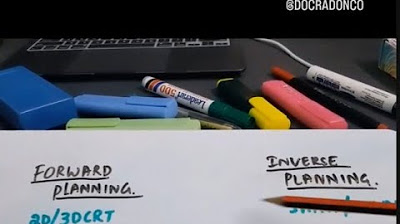Hacking your brain for happiness | James Doty | TEDxSacramento
Summary
TLDRIn this talk, a physician and neuroscientist explores the contrast between living and merely existing. He discusses how modern society, despite its affluence, faces an epidemic of stress, anxiety, and isolation. He highlights the evolutionary and neurological challenges that hinder happiness and fulfillment, emphasizing that true contentment stems from compassion and connection. Instead of relying on medication, he proposes 'hacking' the brain through mindfulness and compassion to foster happiness, purpose, and mental clarity. The speaker encourages embracing these tools to lead a life of meaning and transcendence.
Takeaways
- 😊 Our modern society faces an epidemic of stress, anxiety, isolation, and depression, despite living in one of the most affluent countries in the world.
- 🤔 Many people do not feel they have anyone to turn to during times of suffering, with 25% of people expressing a lack of support.
- 💡 The speaker distinguishes between simply existing and truly living a life of meaning, purpose, connection, and happiness.
- 🧠 Our primitive nervous system, designed for survival in ancient times, often works against us in today’s modern environment, leading to chronic stress responses.
- 💊 The healthcare system focuses on treating illness rather than promoting wellness, often prescribing drugs that don’t address the root cause of these issues.
- 🤝 Humans are hardwired for connection, compassion, and caregiving due to evolutionary traits, but modern society can interfere with these instincts.
- 🚶 Chronic activation of the sympathetic nervous system (fight-or-flight response) leads to anxiety, withdrawal, and decreased productivity.
- 🧘 Practices like meditation and compassion-based exercises can ‘hack’ the brain, turning off the stress response and enhancing mental and physical well-being.
- 🕊 Compassion not only benefits others but also improves our own health, reducing stress hormones, lowering blood pressure, and improving creativity and decision-making.
- 🌟 By cultivating compassion and mindfulness, we can achieve contentment and transcendence, leading to a fulfilling life.
Q & A
What is the speaker's main goal as a neuroscientist?
-The speaker's main goal as a neuroscientist is to understand what stops people from truly living meaningful, fulfilling lives, rather than merely existing or going through the motions.
How does the speaker differentiate the 'life' they are referring to from the commonly understood concept of life?
-The speaker differentiates 'life' as not just about existing or biological survival, but about living with meaning, purpose, connection, contentment, and happiness.
What societal problem does the speaker highlight despite the material wealth of affluent countries like the United States?
-The speaker highlights the epidemic of stress, anxiety, isolation, loneliness, and depression, particularly in affluent countries like the United States, despite their wealth and access to resources.
According to the speaker, why do many people feel isolated or disconnected even when surrounded by others?
-Many people feel isolated or disconnected because they lack meaningful connections and support. The speaker points out that 25% of people do not feel they have anyone to turn to when they are suffering.
What does the speaker attribute to our inability to connect deeply with others?
-The speaker attributes this inability to connect deeply to evolutionary baggage, such as the fight-or-flight response, which can interfere with affiliative behaviors like compassion and connection.
How does the chronic activation of the sympathetic nervous system affect mental and physical health?
-Chronic activation of the sympathetic nervous system, which triggers the fight-or-flight response, can lead to increased anxiety, stress, isolation, weakened immunity, and reduced creativity and productivity.
What solution does the speaker offer for overcoming the negative effects of stress and disconnection?
-The speaker suggests 'hacking' the brain to promote compassion and connection, which can switch the nervous system from stress to calmness, improve mental clarity, and enhance overall well-being.
How does compassion benefit both the giver and the receiver, according to the speaker?
-Compassion benefits both the giver and the receiver by lowering stress hormones, improving cardiovascular health, boosting the immune system, and creating a sense of calmness and connection.
What metaphorical 'pill' does the speaker suggest for achieving happiness and well-being?
-The metaphorical 'pill' the speaker suggests is simple: sit in silence, breathe slowly, and focus on being compassionate for 15 minutes. This practice has profound effects on the mind and body, promoting happiness and transcendence.
What is the speaker's ultimate message about living a meaningful life?
-The speaker's ultimate message is that by cultivating compassion and connection, individuals can transcend stress and anxiety to live a life of purpose, contentment, and true fulfillment.
Outlines

This section is available to paid users only. Please upgrade to access this part.
Upgrade NowMindmap

This section is available to paid users only. Please upgrade to access this part.
Upgrade NowKeywords

This section is available to paid users only. Please upgrade to access this part.
Upgrade NowHighlights

This section is available to paid users only. Please upgrade to access this part.
Upgrade NowTranscripts

This section is available to paid users only. Please upgrade to access this part.
Upgrade NowBrowse More Related Video
5.0 / 5 (0 votes)





